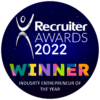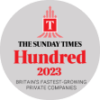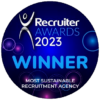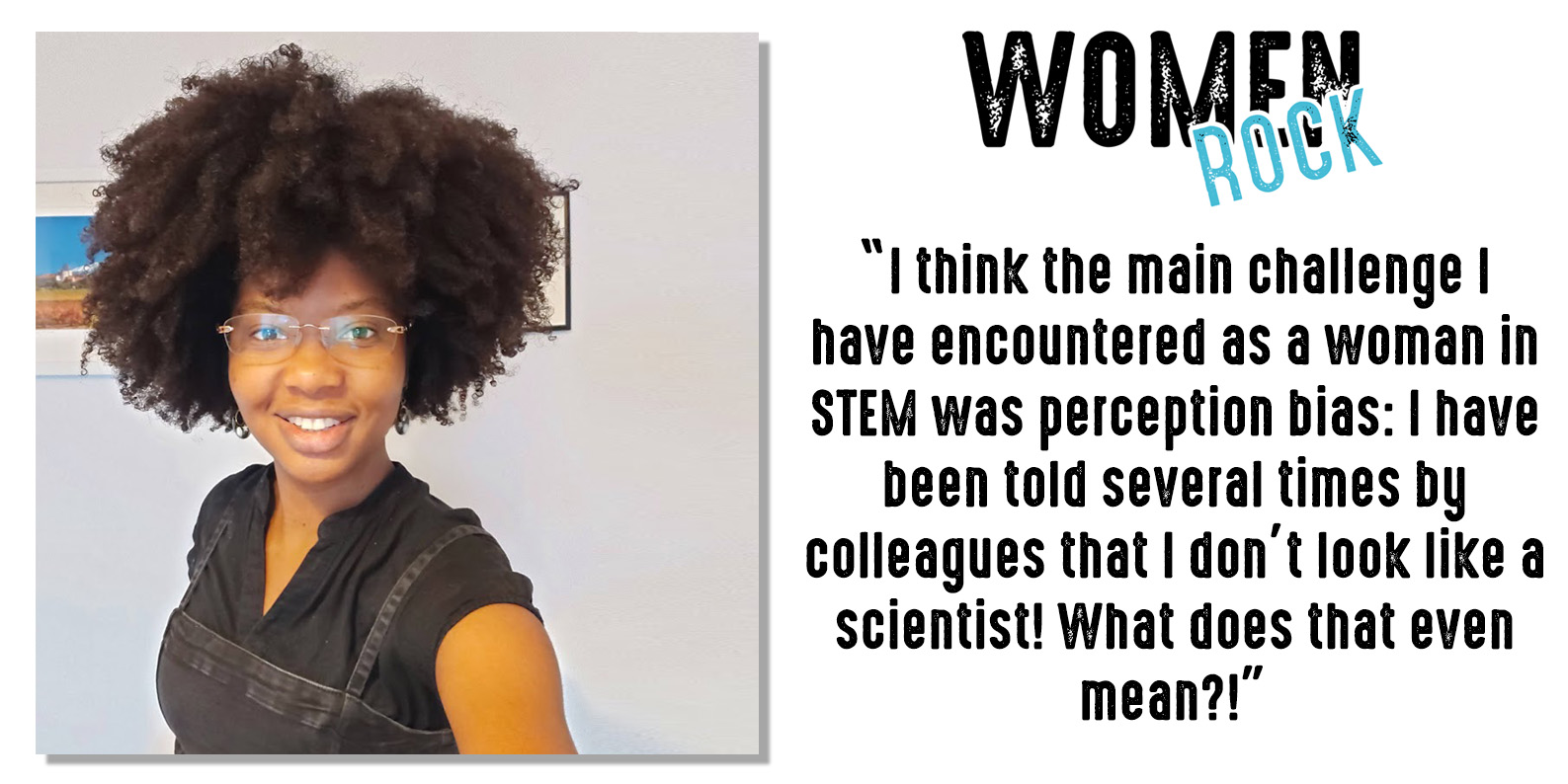
Melody Sylvestre | iO Academy
“It’s not in the stars to hold our destiny but in ourselves” This famous line penned by William Shakespeare for his famous tragedy, Julius Caesar, sets the scene for this week’s incredible Women Rocker – Melody Sylvestre whose tech journey was sparked through her career as an astrophysicist.
Recently graduating from the iO Academy, Melody is now journeying into the world of tech as a software developer and we just know her career is about to skyrocket…
CAN YOU TELL US HOW YOU FIRST GOT INTO TECH AND WHERE THE PASSION FOR IT COMES FROM?
I got into tech through my previous career as an astrophysicist! I was studying climates of other planets with space mission and astronomical observatory data, so 80% of my time was spent coding either to analyse the data or develop atmospheric models. I always loved finding solutions to scientific problems through coding. I realised that coding was not just a tool but an activity I really enjoyed! I have always been fascinated by the fact that it is like solving a puzzle but with a creative side. When I decided to change career, I knew coding had to be part of my next role!
HOW DID YOU FIND THE BOOT CAMP AND WHAT ADVICE HAVE YOU GOT FOR PEOPLE THINKING OF A CAREER SWITCH? WAS THERE ANYTHING YOU WERE NERVOUS ABOUT, OR STRUGGLED WITH AND WHAT DID YOU ENJOY THE MOST?
A career switch is quite an adventure, and I had so many questions. Where do I start? What do I need to know? What am I doing with my life?!
I think boot camps are a great way to navigate this. I really enjoyed my time at the iO Academy boot camp. It was very intense and there was a lot to learn! But the best part was that I was not alone! The trainers are amazing and teach you exactly what you need to know, at the right time! It is also great to be part of a cohort. It was great to be surrounded by like-minded people who were also on a career change journey as we supported and learned from each other.
I would definitely recommend joining a boot camp or another type of coding learning group if that’s a suitable option for you. You will learn faster, and it is so much more motivating. If you are in a boot camp, make the most of it! Ask all the questions! Finally, and most importantly, career changing is a journey which can be exciting but also long and daunting. So, be mindful of that, and be patient with yourself and with the process.
YOU’VE BEEN IN BRISTOL FOR A WHILE NOW. HOW HAVE YOU FOUND THE LAST 8 YEARS AND HOW DOES IT COMPARE TO PARIS AND GUADELOUPE? HAVE YOU STRUGGLED WITH ANY PARTS OF MOVING TO THE UK? WHETHER THAT IS A LANGUAGE BARRIER, FOOD, WEATHER (ALL THE RAIN 🌧😅), CULTURE ETC. AND HAVE YOU GOT ANY ADVICE FOR PEOPLE WHO ARE MOVING HERE?
I have had the most wonderful time in Bristol! It is a very vibrant and welcoming city and a great place to move in from overseas. And the food scene here is fantastic!
I think the difficulties have encountered are not especially related to Bristol or the UK but to moving abroad in general. Life admin was a bit tricky (getting a National Insurance Number, banking, housing, healthcare etc.) simply because each country has their own way to proceed! The best solution is to do your research: get official advice from government websites, your country’s embassy or consulate, or any local contact you have here. Building that “feeling at home” was also quite difficult, especially as I moved on my own. I recommend meeting people outside work through activities, exploring your new town and building local habits (e.g., buying coffee in your local coffee shop, running in this nice park in your neighbourhood on Sundays etc.).
BEING A WOMAN IN THE TECH/RESEARCH/ACADEMIC INDUSTRY, HAVE YOU FACED ANY UNIQUE CHALLENGES OR BARRIERS? IF SO, WHAT HAVE YOU HAD TO OVERCOME AND HAVE YOU SEEN ANY POSITIVE CHANGES TO THE INDUSTRY SINCE YOU’VE BEEN IN IT?
I think the main challenge I have encountered as a woman in STEM was perception bias: I have been told several times by colleagues that I don’t look like a scientist! What does that even mean?! The issue runs deeper than random remarks. My female colleagues in academia and I have too many stories of times when we or our work was overlooked. Besides, this leads to women and under-represented ethnic groups having to work harder just to get the same opportunities as everyone else, which is frustrating and makes them more likely to leave the field.
However, I think STEM industries are slowly getting better. People have more and more awareness of these issues and are trying to take measures to improve the situation. There are also more and more initiatives geared toward women and ethnic minorities in order to promote STEM careers, and the workforce is slowly getting more diverse.
YOU HAVE ACHIEVED SO MANY MILESTONES IN YOUR CAREER ALREADY AND HAVE SOME AMAZING EXPERIENCE BEHIND YOU – WITH YOUR PHD AND YOUR 5+ YEARS AS A RESEARCHER – WHAT ADVICE WOULD YOU GIVE TO PEOPLE FROM DIVERSE BACKGROUNDS TO HELP THEM ACHIEVE SOMETHING SIMILAR?
My 1st piece of advice would be: “Go for it!”. I have learned incredible things, and I have been to amazing places such as the Atacama Desert in Chile! And it all started with me deciding to become an astrophysicist and working toward it. You totally have your place there.
However, academic careers can be quite difficult to navigate as the expectations and career milestones differ a lot from more “traditional” careers. So, I would also advise you to find mentors or at least people you can ask questions about the different stages of your journey (e.g. a lecturer in your favourite course, your Ph.D. supervisors, colleagues in your department, formal mentoring offered by your university etc.).
WITH THE MARKET BEING AS COMPETITIVE AS IT IS RIGHT NOW, WHAT HAS YOUR EXPERIENCE BEEN WITH TRYING TO FIND YOUR FIRST ROLE IN TECH? IS THERE ANYTHING YOU’VE STRUGGLED WITH, OR FOUND CHALLENGING AND WHAT HAVE YOU LEARNED IN THE LAST FEW MONTHS?
It has been difficult to find entry-level positions, which is obviously quite frustrating. I realised that it was going to be a marathon rather than a sprint, so I had to find sustainable ways to search for jobs and stay motivated. There were two main game-changers for me. The first one is engaging with people, either through LinkedIn or events (meetups, hackathons etc.). Looking for jobs is a fairly lonely activity, and it is so much more interesting to actually talk to people. My second piece of advice is to have consistent goals for each day. For instance, each day I try to do a job-search-related activity (e.g. applying for a job, learning something new), a productive activity (e.g. laundry), and something just for fun (e.g. having coffee with a friend, going out for a walk etc.). It helps me stay consistent in my job search, keep a sense of purpose and achievement which is a big motivator for me, and maintain a good work-life balance.
WHAT IS THE MOST FASCINATING/INTERESTING THING YOU WORKED ON IN YOUR PREVIOUS ROLES? AND WHAT AREAS WOULD YOU BE INTERESTED IN WORKING IN NEXT?
I studied Titan’s atmospheric particles with the Very Large Telescope in Chile. Titan is the largest moon of Saturn. Its atmosphere features a very dense haze made of small dust-like particles. Scientists think that they are made of big molecules that are quite similar to building blocks of life (e.g., proteins) and that they could help understand how life appeared on Earth. So, the more scientist can learn about their composition and formation, the better!
I designed an observation project to observe Titan’s haze with the Very Large Telescope (VLT). It was a particularly challenging project: I did not know much about this observation technique and it had never been attempted on a Solar System planet or moon before! I had to learn a lot to plan these observations and analyse them. I really enjoyed working outside my comfort zone, exploring new things, and learning from my colleagues! It was also an incredible experience: I travelled to the VLT (Chile) to lead the observation. It is a fantastic place with state-of-the-art technology and passionate people, and it was inspiring to work in such an incredible facility. The night sky there is also incredibly beautiful because the observatory is in the Atacama Desert, 2,635m (8,645 ft) above sea level. I have never seen so many stars in my life!
WOMEN ROCK IS A PLATFORM TO HELP INCREASE DIVERSITY IN THE TECH WORKPLACE – WHAT IS THE ADVANTAGE OF HAVING A MORE DIVERSE WORKFORCE AND WHAT COULD COMPANIES DO TO HELP PROMOTE THIS?
More diversity in the workplace means bringing more diverse perspectives and ideas to the table. If we want a more socially responsible tech industry, we have to keep up with the fact that we live in a diverse society and how having a diverse workforce is a great way to achieve this.
As a jobseeker and a black woman, I tend to apply more to companies that demonstrate that they are interested in improving their diversity, either by obtaining accreditations or awards (e.g. Clear, UK’s Best Workplace™ for Women, Stonewall etc.) or by supporting events and scholarships from organisations like Coding Black Females or Women in Tech. I think taking active steps to show that diversity is valued helps the tech industry to spread the word that diversity is welcome.
Besides, I think companies should also promote a “diversity-aware” culture where there is clear communication around problematic behaviours and what they look like, and clear processes to raise concerns or report issues.
IT’S TRADITION TO FINISH THESE INTERVIEWS WITH A FAVOURITE QUOTE, MOTTO, OR PIECE OF ADVICE. WHAT WOULD YOU LIKE TO SHARE?
I recommend reading Dare to Lead by Brené Brown. There were some insightful ideas about how to foster a workplace culture where people can communicate openly and bring their best ideas to the table. I think everyone could learn from it, whether you are in a leadership position or not!
Thanks, Melody, you rock 🤘
Interview by Matt Johnson

